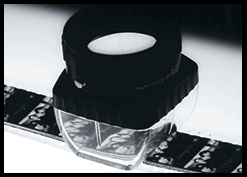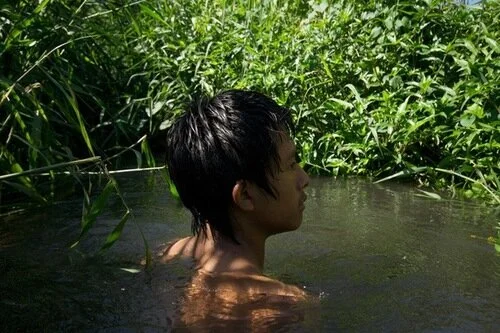GME STREAMLINE PRESENTS NICOLÁS PEREDA: 6 FILMS NOW AVAILABLE AS A DVD/DIGITAL SITE LICENSE BUNDLE
/Following our recent GME Streamline announcement of DVD/DSL bundles of films and videos from Spain and Latin America, we continue with one of the major new voices in contemporary Latin American and world cinema, the young Mexican-Canadian filmmaker Nicolás Pereda (b. 1982). Pereda has emerged from seemingly out of nowhere to be feted with career retrospectives, festival screenings, and glowing critical praise. The DVD boxed set entitled NICOLÁS PEREDA brings together his first six feature films made between 2007 and 2012, as well as his short film INTERVIEW WITH THE EARTH (2009).
Pereda’s films are resolutely Mexican in focus and almost exclusively deal with stories drawn directly from the everyday lives and worlds of their working-class characters. Pereda seems most interested in using cinema to evoke a physical sense of place -- in this case, modern day Mexico. As the filmmaker has stated, “My concern is to understand and ultimately to evoke the experience of the everyday, and to convey through film -- albeit a visual medium -- a physical and intangible sense of feelings, place, and culture.”
Pereda’s microscopic view of seemingly insignificant lives of young people, alternating between city and country, with several actors (especially Teresa Sanchez and Gabino Rodriguez) and even characters (mother and son) reappearing time after time, unfolds with a strange, caustic beauty all its own. The careful, often enigmatic minimalism embraced by Pereda’s films – through fractured, elliptical narratives, his preference for extended shot sequences, and carefully modulated performances -- links this director to his contemporary cinematic artists.
Pereda has been likened to other post-modern auteurists Apichatpong Weerasethakul (Thailand) and Jia Zhangke (China), who both utilize long scenes shot with a mostly stationary camera. His work has also been compared to Pedro Costa (Portugal) and Lisandro Alonso (Argentina) for his attention to setting and atmosphere, and to Tsai Ming-liang (Malaysia) and Aki Kaürismaki (Finland) for the deadpan humor.
Pereda also labors in a similar cinematic space as Errol Morris and Werner Herzog, in his intertwining elements of narrative and documentary cinema. For Pereda, his objective is to radically confuse and reinvigorate the traditional categories of fiction and nonfiction, between what is scripted and what is the truth. Pereda frequently ruptures the narrative by such techniques as reverting to documentary-style interviews with characters speaking to the camera (or is it the actors portraying them?), staged re-enactments of key moment in the story, scenes repeating themselves with slight variations, backstories changing radically, one major actor replaced with another midstream, and the crew wandering through the set. Pereda creates a totally unique world onscreen that blends fiction, fact, and experimental imagery and tropes -- whether within an individual shot, throughout a single film, or across his entire oeuvre, all within the confines of his exploration of the human condition.
Pereda's remarkable feature debut, WHERE ARE THEIR STORIES? (2007) introduces the director’s deadpan, darkly comic vision of cinema, where the relationships among character, place, and time are elemental. Hoping to prevent his grandmother's farm from being sold, a young man heads to the city to find his mother -- and a lawyer. In TOGETHER (2009), three housemates try to overcome faulty plumbing, a missing dog, and their own failing relationships in Pereda's deadpan examination of a young adulthood spent with no funds, no fun, and no love.
In his hour long docudrama ALL THINGS WERE NOW OVERTAKEN BY SILENCE (2010), Pereda takes a darkly-lit black-and-white look at what goes on behind the scenes of a staged poetry reading by actress and performance artist Jesua Rodriguez. It’s a parallel work to a production he already helped construct that questions where the reality ends and the fiction of the process begins.
In his films, Pereda presents a microcosm of the Mexican social order. Pereda's bemused, down-market city-symphony PERPETUUM MOBILE (2009) follows two hapless Mexico City moving-van “entrepreneurs” through a succession of run-ins with clients, friends, and family, all of whom are in perpetual motion-usually just spinning in circles, and rarely heading upwards. In SUMMER OF GOLIATH (2010), set amidst the intrigues, small-town gossips, and class divides of rural Huilotepec, Mexico, all forms of fiction, documentary, fantasy, and reality are under question. Pereda’s experimental approach includes documentary-style interviews with characters speaking to the camera, a staged re-enactment of a key moment in the story (just before we see the moment in real time) and scenes shot out of focus so that we can’t be completely sure what’s happening and to whom. Combined with straightforward narrative segments filmed in a quotidian, slow-moving pace, they contribute to an atmosphere that combines rigor with voluptuousness.
A tale of a prodigal father’s return, Nicolas Pereda’s GREATEST HITS (2012) is replete with multiple intersecting narrative tropes: scenes repeat themselves with slight variations, backstories change radically, one major actor is replaced with another midstream, the crew wanders through the set, and the offscreen director openly interrogates his characters. The intensity of the actors engage the viewer in the evolving domestic drama, regardless of its unraveling fictive framework.
In Pereda’s short film (added as a bonus feature), INTERVIEW WITH THE EARTH (2009), a series of interviews and re-enactments present the story of Nico and Amalio, two children who lost a friend while climbing a mountain. Documentary and fiction seamlessly merge to create a poetic hybrid film. In writing about this movie, Pereda provides insight into his entire filmmaking practice: He writes,
“I aimed to create a poetic film that merges fiction and documentary. My intention was to make a film where the person on the screen could be at once the actor and the character. It is never clear what occurs in the world of fiction or in the world of documentary. Perhaps, a better explanation could be that at every moment, in every frame, there are elements of both fiction and documentary. I believe this to be a very interesting approach because it creates a sort of awareness that neither forms of filmmaking are closer to reality. They are simply a point of view on reality, and at the same time, a particular reality of their own.”







